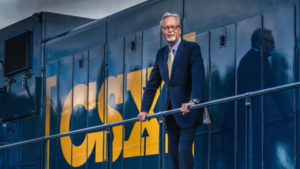MTA New Haven Line goes to reduced schedule
Written by jroodThe New York Metropolitan Transportation Authority will introduce a reduced winter schedule affecting the Metro-North New Haven Line rush-hour, peak-direction trains starting Monday, February 7. This schedule reduces service by approximately 10 percent percent during peak hours. In nearly all cases, customers will be able to board a train within five minutes of their normal departure time, although in some cases trains will make more stops than normal. During this time, weekday off-peak service will not be affected. On weekends, a Sunday schedule will be in effect for both days. These schedule changes, expected to last through March 4, are required because the railroad has had a severe and ongoing shortage of cars available for use on the New Haven Line. The problems with the fleet result from the age of the cars - almost 70 percent of the electric fleet is over 40 years old - and the impact of the unprecedented winter weather on them. Significant car shortages due to record-breaking amounts of snow and extreme cold have forced Metro-North to operate trains with fewer cars than normal, and to cancel trains, causing severe crowding and train delays. The new schedule will increase the dependability of the trains that are running. "The service we have been providing has been far less than what our customers have come to expect from us and we strive to provide for them," said Metro-North President Howard Permut. "It is time for us to take these additional steps to improve our service reliability and minimize further inconvenience." On a daily basis, there are close to 150 electric cars out of service on the New Haven Line. Metro-North employees are working around-the-clock to get damaged equipment back into service. However, with each new weather event, more weather-damaged cars arrive in the shops in need of repair. The cars, which pre-date the creation of Metro-North by about a decade, were designed in a manner that made key components extremely vulnerable to snow. These components include: -Traction motors, which must be repaired or replaced - a job that routinely takes six or more hours to complete. -Brakes, which freeze and get stuck from the extreme cold. -Doors, which won’t close properly because the snow and ice that gets inside the door pockets prevents them from opening or closing on command. Shop space is limited, further complicating repair efforts. Metro-North employees do not let this limitation stop them, working outside the shops, crawling under cars in the snow and extreme cold to repair components. Every day, repaired equipment goes back into service, and every day, more weather-damaged cars arrive in need of repair.





